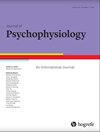Error Processing During the Online Retrieval of Probabilistic Sequence Knowledge
IF 0.9
4区 心理学
Q4 NEUROSCIENCES
引用次数: 6
Abstract
Abstract. Adaptive behavior involves rapid error processing and action evaluation. However, it has not been clarified how errors contribute to automatic behaviors that can be retrieved to successfully adapt to our complex environment. Automatic behaviors strongly rely on the process of probabilistic sequence learning and memory. Therefore, the present study investigated error processing during the online retrieval of probabilistic sequence knowledge. Twenty-four healthy young adults acquired and continuously retrieved a repeating stimulus sequence reflected by reaction time (RT) changes on a rapid forced-choice RT task. Performance was compared with a baseline that denoted the processing of random stimuli embedded in the probabilistic sequence. At the neurophysiological level, event-related brain potentials synchronized to responses were measured. Error processing was tracked by the error negativity (Ne) and the error positivity (Pe). The mean amplitude of the Ne gradually decreased as the task progressed, similarly for the sequence retrieval and the embedded baseline process. The mean amplitude of the Pe increased over time, likewise, irrespective of the type of the stimuli. Accordingly, we propose that automatic error detection (Ne) and conscious error evaluation (Pe) are not sensitive to sequence learning and retrieval. Overall, the present study provides insight into how error processing takes place for the retrieval of sequence knowledge in a probabilistic environment.概率序列知识在线检索过程中的错误处理
摘要自适应行为包括快速错误处理和行动评估。然而,错误是如何导致自动行为的,这些行为可以被检索以成功适应我们复杂的环境,这一点还没有得到澄清。自动行为在很大程度上依赖于概率序列学习和记忆的过程。因此,本研究对概率序列知识在线检索过程中的错误处理进行了研究。24名健康的年轻人在快速强迫选择RT任务中获得并连续检索到反应时间(RT)变化所反映的重复刺激序列。将性能与表示嵌入概率序列中的随机刺激的处理的基线进行比较。在神经生理学水平上,测量与反应同步的事件相关脑电位。通过误差负性(Ne)和误差正性(Pe)来跟踪误差处理。Ne的平均振幅随着任务的进行而逐渐降低,类似于序列检索和嵌入式基线过程。同样,无论刺激类型如何,Pe的平均振幅都会随着时间的推移而增加。因此,我们提出自动错误检测(Ne)和有意识错误评估(Pe)对序列学习和检索不敏感。总的来说,本研究深入了解了在概率环境中检索序列知识时如何进行错误处理。
本文章由计算机程序翻译,如有差异,请以英文原文为准。
求助全文
约1分钟内获得全文
求助全文
来源期刊

Journal of Psychophysiology
医学-神经科学
CiteScore
2.60
自引率
7.70%
发文量
25
审稿时长
>12 weeks
期刊介绍:
The Journal of Psychophysiology is an international periodical that presents original research in all fields employing psychophysiological measures on human subjects. Contributions are published from psychology, physiology, clinical psychology, psychiatry, neurosciences, and pharmacology. Communications on new psychophysiological methods are presented as well. Space is also allocated for letters to the editor and book reviews. Occasional special issues are devoted to important current issues in psychophysiology.
 求助内容:
求助内容: 应助结果提醒方式:
应助结果提醒方式:


